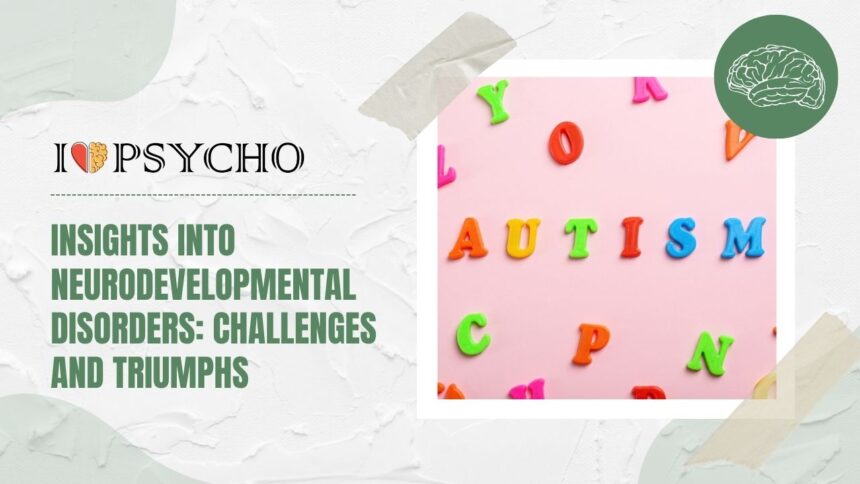Introduction to Neurodevelopmental Disorders
Welcome to a journey through the intricate world of neurodevelopmental disorders. Buckle up as we delve into the challenges and triumphs faced by individuals navigating these unique neurological pathways. Get ready to explore the complexities, breakthroughs, and heartfelt stories that shape our understanding of these conditions. Let’s embark on this enlightening exploration together!
Commonly Diagnosed Disorders
Neurodevelopmental disorders encompass a wide range of conditions that affect brain function and, consequently, behavior and learning. Some commonly diagnosed disorders include Autism Spectrum Disorder (ASD), Attention-Deficit/Hyperactivity Disorder (ADHD), Dyslexia, and Intellectual Disability.
ASD is characterized by challenges in social interaction, communication, and repetitive behaviors. ADHD involves difficulties with attention, hyperactivity, and impulsivity. Dyslexia affects reading ability due to difficulties with processing language. Intellectual Disability is marked by limitations in intellectual functioning and adaptive behaviors.
Each of these disorders presents unique challenges for individuals affected by them. However, early diagnosis and intervention can significantly improve outcomes for those living with neurodevelopmental disorders. By understanding the specific needs of individuals with these conditions, we can better support their growth and development.
Symptoms and Characteristics
Symptoms and characteristics of neurodevelopmental disorders vary depending on the specific condition. For example, individuals with ASD may have difficulty understanding and using nonverbal communication, struggle with change or transitions, exhibit repetitive behaviors or intense interests, and have sensory sensitivities.
Individuals with ADHD may display difficulty sustaining attention, excessive fidgeting or restlessness, difficulty following through on instructions, and frequent interrupting or blurting out answers. Those with dyslexia may struggle with reading fluency and comprehension, spelling accuracy, phonological processing (the ability to break down words into individual sounds), and writing skills.
Intellectual Disability is characterized by limitations in intellectual functioning (measured by IQ) as well as difficulties in adaptive behaviors such as self-care, social skills, and problem-solving. These challenges may be evident in childhood or become more apparent as an individual navigates adulthood.
Causes
The causes of neurodevelopmental disorders are complex and not fully understood. Some factors that may contribute to their development include genetic predispositions, prenatal exposure to toxins or infections, complications during pregnancy or birth, brain injury or trauma, and environmental influences.
Genetic factors play a significant role in conditions like ASD, ADHD, and intellectual disability. However, not all individuals with a genetic predisposition to these disorders will develop them. Prenatal exposure to toxins or infections, such as alcohol or rubella, can also increase the likelihood of developing neurodevelopmental disorders.
In some cases, brain injuries or trauma can result in the development of these conditions. For example, a traumatic brain injury sustained during childhood may lead to difficulties with attention and behavior.
Finally, environmental factors such as exposure to stress or toxins can also contribute to the development of neurodevelopmental disorders. Further research is needed to fully understand how these different factors interact and contribute to the development of these conditions.
Treatment and Management
Treatment for neurodevelopmental disorders typically involves a combination of therapies and interventions tailored to the individual’s specific needs. Early diagnosis is crucial for providing early intervention services that can help improve outcomes for individuals with neurodevelopmental disorders.
Some common treatments include behavioral therapy, speech and language therapy, occupational therapy, medication management (for conditions like ADHD), educational accommodations (such as individualized education plans), and support groups for individuals and families.
It is essential to take a holistic approach when treating neurodevelopmental disorders because they often impact multiple areas of an individual’s life. This may involve addressing not only the symptoms but also managing co-occurring conditions and supporting overall well-being.
Supporing individuals with neurodevelopmental disorders requires a collaborative effort from parents, healthcare professionals, educators, and the community. By providing early intervention and ongoing support, we can help individuals with these conditions reach their full potential and lead fulfilling lives.
Challenges Faced by Individuals with Neurodevelopmental Disorders
Navigating the daily challenges of neurodevelopmental disorders can be a complex journey for individuals and their families. From communication difficulties to sensory sensitivities, each person’s experience is unique. Simple tasks that others take for granted may present significant obstacles.
Social interactions can be overwhelming, leading to feelings of isolation and exclusion. Education settings may not always provide the necessary support tailored to individual needs, causing frustration and hindering academic progress. The inability to regulate emotions or impulses can create additional hurdles in personal relationships and day-to-day activities.
Sensory overload in noisy or crowded environments can trigger anxiety or meltdowns, making it challenging to participate in community events or outings. Accessing appropriate healthcare services and therapies may also pose financial burdens on families already coping with various stressors.
Despite these challenges, individuals with neurodevelopmental disorders demonstrate resilience and strength as they navigate a world that is not always accommodating or understanding of their needs.
The Importance of Early Intervention and Therapies
Early intervention and therapies play a crucial role in supporting individuals with neurodevelopmental disorders. Detecting these conditions early can lead to better outcomes for those affected. By identifying challenges at a young age, targeted interventions can be implemented to address specific needs and promote development.
Therapies such as speech therapy, occupational therapy, and behavioral interventions are tailored to each individual’s requirements. These interventions aim to enhance communication skills, motor function, social interactions, and overall quality of life. The sooner these therapies begin, the more effective they can be in helping individuals reach their full potential.
Moreover, early intervention not only benefits the individual but also provides guidance and support for families navigating through the complexities of neurodevelopmental disorders. It empowers caregivers with tools and strategies to assist their loved ones in daily activities and foster independence.
In essence, investing in early intervention is an investment in a brighter future for those living with neurodevelopmental disorders.
Personal Stories and Triumphs
Imagine a world where every individual’s journey with neurodevelopmental disorders is as unique as their fingerprint. Personal stories of triumphs abound, showcasing resilience, determination, and the power of the human spirit.
One might share the tale of overcoming communication barriers to express themselves fully or conquering sensory sensitivities to embrace new experiences with confidence. Another might narrate the joys of achieving academic success against all odds or mastering social interactions through unwavering perseverance.
These narratives are a testament to the strength within each person living with neurodevelopmental challenges. They inspire hope, spark empathy, and remind us that difference does not equate to limitation but rather an opportunity for growth and understanding.
In celebrating these personal victories, we honor the diverse paths taken by individuals navigating neurodevelopmental disorders and recognize their invaluable contributions to society at large.
Current Research and Advancements
Exciting advancements in neurodevelopmental disorder research are constantly unfolding. Researchers worldwide are delving into the complexities of these disorders, exploring potential genetic links and environmental influences. Novel technologies like brain imaging and genetic testing are aiding in understanding the underlying mechanisms of conditions such as autism spectrum disorder, ADHD, and intellectual disabilities.
Innovative studies are focusing on early detection methods to intervene at crucial stages of development. Scientists are also investigating personalized treatment approaches tailored to individual needs. Promising pharmaceutical interventions and behavioral therapies offer hope for improving outcomes and enhancing quality of life for those affected by neurodevelopmental disorders.
Collaborations between multidisciplinary teams bring diverse perspectives to the table, fostering groundbreaking discoveries and holistic approaches to managing these conditions. As research continues to evolve, new insights emerge that pave the way for a better understanding of neurodevelopmental disorders and innovative interventions aimed at transforming lives.
How Society Can Better Support Individuals with Neurodevelopmental Disorders
Society plays a crucial role in supporting individuals with neurodevelopmental disorders. One way to enhance support is by promoting inclusivity and acceptance within communities. By fostering understanding and empathy, we can create a more welcoming environment for those with diverse needs.
Another important aspect is providing accessible resources and services. From educational accommodations to job opportunities, ensuring equal access can empower individuals with neurodevelopmental disorders to thrive and contribute their unique strengths to society.
Advocacy also plays a significant role in shaping policies and attitudes towards neurodiversity. By amplifying the voices of those affected by these disorders, we can advocate for better support systems and increased awareness on a broader scale.
It takes collective effort from all members of society to create a more inclusive world where individuals with neurodevelopmental disorders are valued and supported in every aspect of life.
Conclusion
Neurodevelopmental disorders present unique challenges to individuals and their families. Despite these difficulties, there is hope in the form of early intervention, therapies, and ongoing research. By understanding these disorders better and offering support and acceptance, society can create a more inclusive environment for those with neurodevelopmental conditions to thrive. Let’s continue to learn, advocate, and empower individuals with neurodevelopmental disorders towards a brighter future.









